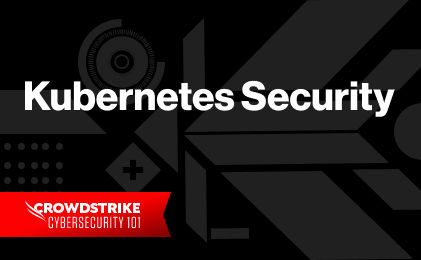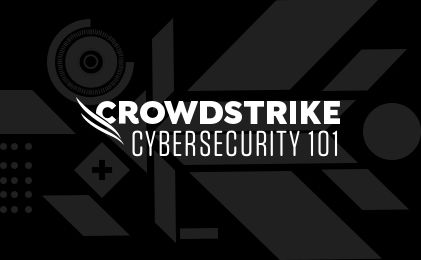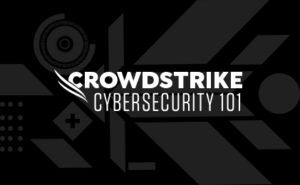Understand CNAPPs with Our Guide
Understand CNAPPs with Our Guide
What is KaaS?
Kubernetes, or K8s, is an open-source container orchestration platform that enhances the scalability and reliability of cloud-native applications. Getting Kubernetes deployments spun up quickly helps companies stay competitive and helps DevOps teams meet market demand, and that’s where Kubernetes as a service (KaaS) comes in.
KaaS is a managed solution offered by cloud providers to streamline the deployment, management, and operation of Kubernetes clusters. With KaaS, organizations can offload the complexities of managing the underlying infrastructure and focus their attention on building and running their applications. By handling tasks like scalability, high availability, and security, KaaS ensures that Kubernetes clusters are robust and resilient, empowering teams to innovate without worrying about the technical details of cluster maintenance.

Securing Kubernetes Across the Enterprise
In this CrowdCast session, CrowdStrike is joined by Red Hat to discuss the state of Kubernetes security and how to secure Kubernetes at your organization without killing productivity.
On-Demand HereBenefits of using KaaS in cloud computing
Some benefits of using KaaS in cloud computing include:
Simplified cluster management
KaaS removes the complexity of setting up and maintaining Kubernetes clusters by handling the heavy lifting. Instead of wrangling with provisioning, upgrading, and managing the Kubernetes control plane, service providers take care of it so that developers can shift their focus to driving innovation.
Enhanced security
With KaaS, security is built-in and proactive. Automated security patches and updates, network policies, and role-based access control (RBAC) are seamlessly managed, ensuring a fortified environment. Continuous monitoring and compliance through integrations with advanced security tools also provide additional protection layers.
Scalability and high availability
KaaS platforms are designed to effortlessly handle growth with auto-scaling capabilities, which adjust resource allocation based on demand without the need for manual intervention. Meanwhile, high availability comes as standard thanks to infrastructure redundancy that minimizes downtime and ensures system reliability.
Cost efficiency
By shifting infrastructure management to the service provider, KaaS reduces operational costs and simplifies budgeting. With a pay-as-you-go model, organizations only pay for the resources they actually use, making scaling cost-effective without waste. This flexibility allows businesses to optimize budgets while maintaining top-tier performance.
More time to focus on development
KaaS allows developers to stay focused on what they do best: coding and delivering high-quality applications. By taking care of infrastructure management, KaaS removes the distractions that typically come with Kubernetes operations. This leads to faster development cycles, more productive teams, and a sharper focus on delivering value.
Seamless integrations
KaaS isn’t just about managing Kubernetes clusters; it’s also about enhancing them with seamless integrations. Support for continuous integration/continuous delivery (CI/CD) pipelines, monitoring, and logging is built in, giving developers the tools they need to efficiently run modern, cloud-native applications. These integrations help enhance functionality and streamline workflows, making it easier to innovate and iterate.
Challenges of adopting KaaS
Some of the challenges of adopting KaaS include:
Training
Though KaaS simplifies Kubernetes management, getting ramped up can be a challenge. Kubernetes itself comes with a learning curve, and training developers to effectively use KaaS can take some time and resources. It’s an investment, but it’s one that pays off as developers become more proficient with the platform.
Vendor dependence
Another challenge with KaaS is the reliance on the service provider for time-sensitive tasks, such as patching vulnerabilities in the Kubernetes environment. With the service provider managing these aspects, it’s important to choose a reliable vendor that has a track record for their responsiveness and expertise in keeping the Kubernetes systems secure.
Popular KaaS providers
Some of the most popular KaaS providers include:
Google Kubernetes Engine (GKE)
GKE is a fully managed Kubernetes service that integrates seamlessly with Google Cloud services. It offers automated operations, integrated developer tools, and comprehensive security features, making it a robust choice for organizations looking to leverage Kubernetes in the cloud.
Amazon Elastic Kubernetes Service (EKS)
Amazon EKS provides a managed Kubernetes service on Amazon Web Services (AWS) known for its high availability and security. Amazon EKS offers deep integration with AWS services such as AWS Identity and Access Management (IAM), Amazon Virtual Private Cloud (VPC), and Amazon CloudWatch, enabling organizations to build and scale Kubernetes applications within the AWS ecosystem.
Azure Kubernetes Service (AKS)
Microsoft's AKS provides a KaaS experience that is tightly integrated with Azure services. With built-in capabilities like CI/CD, security, monitoring, and compliance, AKS equips users with the tools they need to effectively manage Kubernetes environments on Azure.
CrowdStrike’s approach
KaaS represents a significant advancement in the management and deployment of containerized applications. By leveraging managed Kubernetes solutions, organizations can reduce operational overhead, enhance security, and focus on delivering business value. As cloud computing continues to evolve, KaaS will play a crucial role in enabling scalable, resilient, and secure application deployments.
Integrating Kubernetes security tools that run alongside your KaaS-supported Kubernetes workloads is crucial to maximizing security. CrowdStrike Falcon® Cloud Security delivers container, Kubernetes, and host protection from build to runtime in AWS, Azure, and Google Cloud while ensuring security in every step of the CI/CD pipeline.







